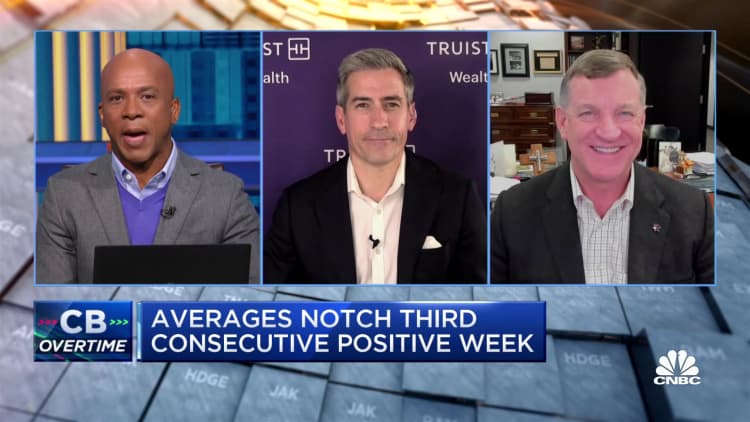Morsa Images | Getty Images
Whether you’re a new or a seasoned investor, exchange-traded funds, or ETFs, are one option for your portfolio, depending on your goals and risk tolerance, experts say.
ETFs are a wrapper for individual assets such as stocks and bonds, similar to mutual funds. However, many ETFs have better tax efficiency and lower expense ratios than mutual funds, driving many investors to make the switch.
“ETFs have come a long way over the past 15 to 20 years,” said certified financial planner Barry Glassman, founder and president of Glassman Wealth Services in McLean, Virginia. He is also a member of CNBC’s Financial Advisor Council.
In 2022, investors sold more than $900 billion from mutual funds and poured roughly $600 billion into ETFs, according to Morningstar data. The net difference was the largest on record.
With the continued shift underway, we spoke with experts from CNBC’s FA Council to find out how they’re using ETFs in client portfolios.
Tax efficiency is the ‘most attractive feature’
If you’re investing in a brokerage account, capital gains and dividends trigger taxes yearly, compared to your pretax 401(k) or individual retirement accounts, which defer taxes until you withdraw the funds.
“The most attractive feature of an ETF is that most don’t distribute capital gains at the end of the year,” Glassman said.
The most attractive feature of an ETF is that most don’t distribute capital gains at the end of the year.
Barry Glassman
Founder and president of Glassman Wealth Services
By comparison, certain mutual funds have year-end capital gains distributions, particularly those with large outflows, which require managers to sell off holdings.
For Cathy Curtis, a CFP and founder of Curtis Financial Planning in Oakland, California, ETFs provide “more control over the tax impact” for investments in a brokerage account.
“Being in California, a very high tax state, this is an important part of my practice — helping clients to minimize taxable income,” she said.

How ETFs help diversify portfolios
ETFs can also be used to balance risk with reward in your asset allocation strategies.
You can think about ETFs as part of either a core portfolio or a satellite portfolio, according to Marguerita Cheng, a CFP and CEO of Blue Ocean Global Wealth in Gaithersburg, Maryland.
ETFs with exposure to broad-based indices, such as the S&P 500, can be a part of your core portfolio, providing stability because the fund follows the general movement of the index. Kamila Elliott, an Atlanta-based CFP and co-founder and CEO of Collective Wealth Partners, said her firm uses ETFs primarily for core positions in its portfolios.
By comparison, ETFs in satellite portfolios provide opportunities for diversification, which lessens exposure to any singular asset or risk. For example, Cheng pointed to a client interested in opportunities in the video game industry who was able to identify a video game ETF that suited their interests.
Since you can’t guarantee the next big industry winner — including in the video game industry — ETFs in this role can be less of a risky bet than individual stocks, but they still have the potential for large losses and gains.
ETFs are ‘a little bit more intentional’
“[ETFs] just can be really powerful because clients can be a little bit more intentional,” Cheng said.
Compared to mutual funds, ETFs allow you to decide where to invest your money with a greater focus on matching personal interests and needs, Cheng said. Noncore ETFs are often specific to certain sectors, stocks or niche focuses, such as food system sustainability during climate change.
To complement core ETFs, Elliott said she typically uses mutual funds “in the developed markets, emerging markets and ESG space.”
Don’t miss these stories from CNBC PRO:

